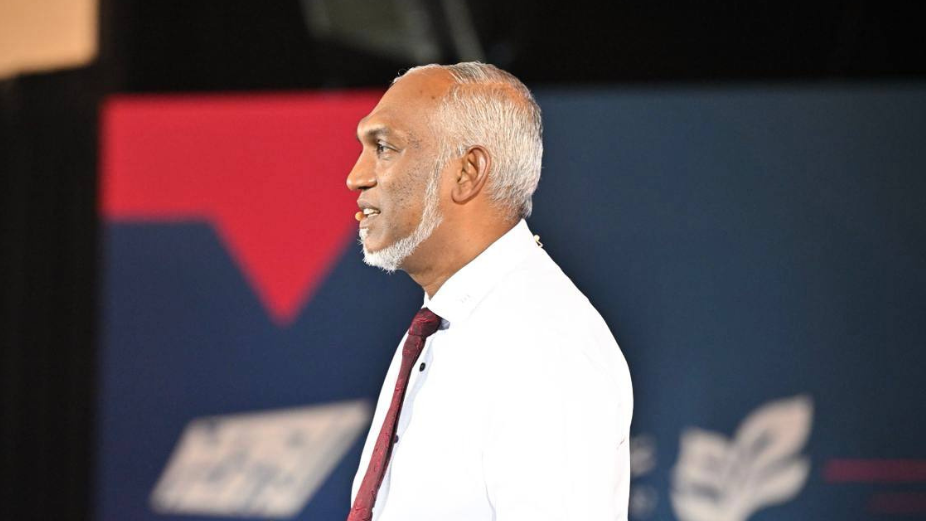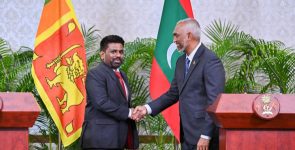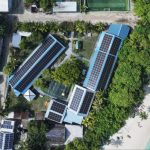
One year ago, President Dr Mohamed Muizzu assumed office amidst high hopes and towering promises to revitalise the Maldivian economy and streamline government operations. As his administration marks its first anniversary, questions loom large over its ability to deliver on those commitments. Despite some strides in policy formulation, tangible progress remains elusive, leaving many to wonder whether the new leadership has steered the nation towards recovery or deeper into economic uncertainty.
Economic Reforms Meet Stark Realities
When President Muizzu took the helm, the Maldives was grappling with severe economic challenges, teetering on the brink of an abyss exacerbated by the global pandemic’s impact on tourism, a critical sector for the nation. Strengthening the economy was declared the government’s top priority. Yet, despite an uptick in state revenue, significant hurdles have persisted.
The administration has launched few structural projects, and many initiatives inherited from previous governments have been postponed or stalled. While some major projects continue unabated, the suspension of numerous developments outside of the greater Male area has drawn criticism and fostered public discontent.
Fiscal Austerity: A Promise Unkept
Central to President Muizzu’s campaign was a pledge to reduce government spending and tackle the perceived bloat within the bureaucracy established by the Maldivian Democratic Party (MDP). The goal was to cap state political appointments at 700 positions. However, this objective has not been met.
Following the presidential election, the government faced parliamentary, mayoral elections. Substantial funds were expended to secure victories, necessitating a proliferation of political appointments. Reports indicate that some individuals received salaries for eight months without official duties, undermining efforts to curb expenditure.
Public scepticism has grown as the government asserts its commitment to austerity. The Maldives Monetary Authority (MMA) reports an increase in government spending rather than a decrease. State-Owned Enterprises (SOEs) have not reduced costs, and officials have embarked on numerous international trips. These actions stand in stark contrast to the promised fiscal prudence.
The Dollar Dilemma
The administration’s attempts to address the dollar shortage have yielded limited success. The US dollar’s value on the black market has risen from MVR 17 to over MVR 19 since the government took office, with some anticipating further increases. A significant portion of state revenue is consumed by operational costs and servicing both external and internal debts, leaving scant resources for developmental projects. The government’s reliance on domestic borrowing, due to challenges in securing foreign loans, has escalated internal debt, a burden that cannot be sustained indefinitely. The budget deficit is projected to swell to MVR 10 billion this year, intensifying calls for effective fiscal strategies.
Foreign Relations: Mending Fences but Few Gains
This year has seen limited success in attracting foreign aid. Early tensions with India, sparked by comments from government officials leading to a tourism boycott, have been cautiously alleviated following President Muizzu’s visit to New Delhi. The trip resulted in promises of budget support and new agreements for project implementation. Relations with China have also warmed, however, the tangible benefits of these improved relations have yet to materialise, offering little immediate relief to the nation’s pressing economic woes.
Housing Projects: High Hopes Deferred
Housing shortages persist as a critical issue. No new housing projects have been launched, despite announcements of future initiatives. Public frustration mounts over the delayed handover of 4,000 flats initiated by the previous administration. Administrative errors and shifting deadlines have eroded trust.
The government has proceeded with allocating land designated by its predecessor, including plots in the second phase of Hulhumalé. However, crucial projects like the dredging for Phase III remain incomplete. Plans for Rasmale have been stymied by funding limitations, slowing progress to a crawl.
Housing Minister Ali Haidar cites budget constraints as a primary obstacle, noting that foundational work has begun and that the upcoming budget will prioritise housing. The opposition, however, remains unconvinced, questioning the utilisation of a supplementary budget totalling MVR 55 billion and demanding transparency regarding expenditure.
Fisheries Sector: Navigating Rough Waters
The fisheries industry, a cornerstone of the Maldivian economy, has voiced significant grievances. The previous government had increased the price of fish to MVR 25 per kilogramme and worked on to reduce export duties to the European Union by February. The current administration failed to implement these measures, resulting in forced price reductions.
President Muizzu had pledged to maintain fish prices at MVR 16 per kilogramme, but market rates have since dipped below this threshold. Fishermen have staged protests over delayed payments in US dollars, which they are supposed to receive within 48 hours. The Maldives Industrial Fisheries Company (MIFCO) has struggled to facilitate timely disbursements, exacerbating tensions and undermining confidence in the government’s handling of the sector.
Healthcare Initiatives: A Beacon of Progress
Amidst criticisms, the official opening of the 25-storey Dharumavantha Hospital stands as a notable accomplishment. Initially constructed during former President Abdulla Yameen’s tenure, the facility had remained partially unused. The current administration has activated the hospital as a full-fledged tertiary care centre and announced plans to build an adjacent cancer hospital, signalling a commitment to advancing healthcare services.
Transparency Under Scrutiny
One of the most pointed criticisms from the opposition centres on the government’s transparency, or lack thereof. President Muizzu campaigned on a platform of openness, yet his administration has faced allegations of secrecy concerning critical information such as the number of political appointees and undisclosed agreements.
The government’s parliamentary majority has facilitated closed-door committee meetings, fuelling perceptions of opacity. The opposition has labelled the administration a “secret government,” expressing concerns over democratic accountability and the erosion of public trust.
Policy Over Practice: A Year of Foundations
While tangible project implementation has been limited, the government emphasises its focus on policy formulation as a foundation for future development. Initiatives aim to diversify the economy, reform subsidies, and increase revenue streams. Significant decisions have been made regarding foreign policy adjustments, exchange rate management, and tobacco control measures.
However, the efficacy of these policies remains to be seen. Critics argue that without concrete actions and visible progress, policy initiatives offer little solace to citizens grappling with economic hardships and stalled development.
An Uncertain Path Forward
Assessing President Muizzu’s first year in office reveals a landscape of unmet promises and mounting challenges. The administration’s inability to deliver on key campaign pledges,particularly in reducing government expenditure, stabilising the economy, and enhancing transparency, has led to growing public dissatisfaction.
While strides in healthcare and policy groundwork offer glimmers of progress, they are overshadowed by pressing economic concerns and a perceived disconnect between the government’s commitments and its actions. As the Maldives navigates these turbulent times, the effectiveness of President Muizzu’s leadership in the coming years will be critical in determining whether the nation can overcome its current obstacles or remain mired in unfulfilled aspirations.









